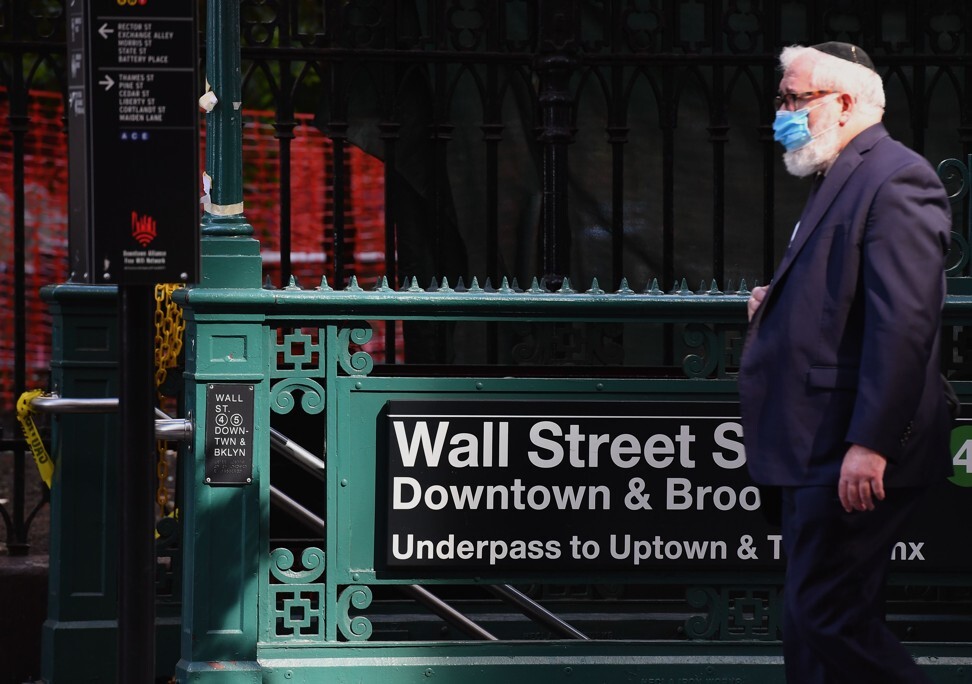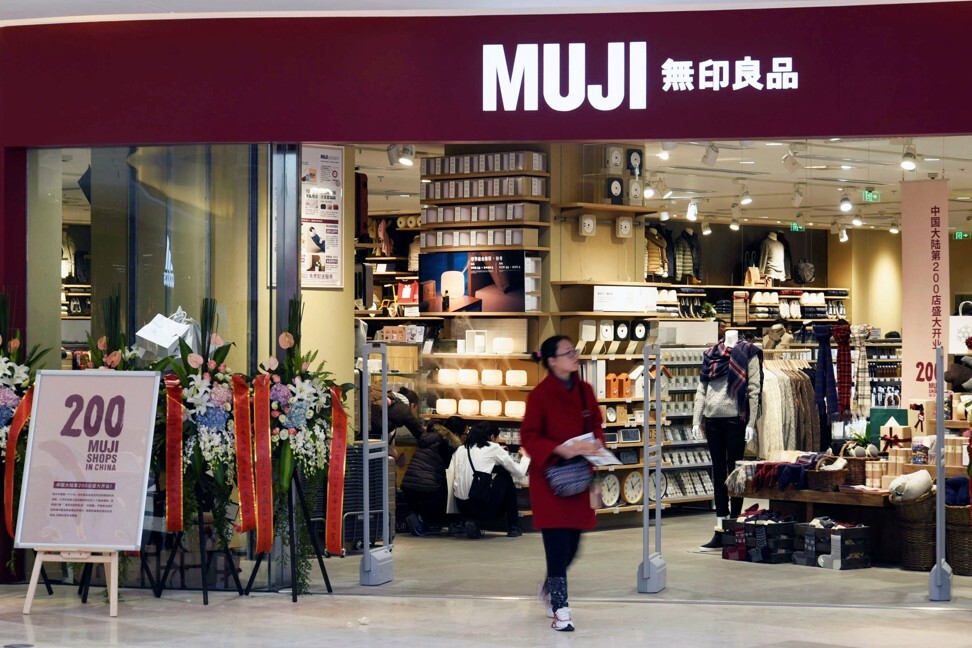
China’s top retailer Miniso wants to reach ‘every corner of the world’ after New York stock debut
- Miniso stock began trading in New York with a 22 per cent gain after pricing its US$608 million IPO above indicative range
- Retailer has lost money in recent two financial years and faces growth challenges brought by coronavirus pandemic

Miniso Group Holding, China’s largest variety lifestyle goods retailer, appears to be winning over investors with an expansion plan to reach “every corner of the world”, judging by its robust New York Stock Exchange initial public offering.
The group, which combined the appeal Japanese rival Muji’s quality with affordable pricing concept, intends to spend 60 per cent of its US$608 million IPO proceeds to boost its market presence and warehousing and logistics strength.
“The warm reception shows that the world’s largest capital market favoured our business model, which is selling good-looking, fine-design products at cheaper price,” chief financial officer Zhang Saiyin said in an interview late Thursday. “Clearly, there is much room in overseas markets. We are hoping to reach every corner of the world and this is a key reason why we chose New York for fundraising.”
The retailer, whose investors include Tencent Holdings, sold 30.4 million American depositary shares (ADS) in its NYSE listing. The ADSs were sold at US$20 apiece, above the indicated range of US$16.50 to US$18.50. Each ADS represents four ordinary A shares in the Guangzhou, Guangdong-based retailer.

The stock rose as high as US$24.90 on Thursday before ending the debut at US$20.88, giving the group a market value of US$6.35 billion, according to Bloomberg data. The listing will make its chairman and chief executive Ye Guofu the latest addition to China’s expanding list of billionaires. The 42-year old founder, who controls 82.2 per cent of voting power, grew Miniso from a one-store business in 2013 by fashioning it after Muji’s quality and 100-yen stores pricing concept.
“It is very simple that there is not a single buyer in the world who would like to pay for expensive sloppy products,” Zhang said, adding that 95 per cent of its goods are priced below 50 yuan each. “That is why our products are universally appealing to international consumers.”
The group had 4,222 stores in more than 80 countries at the end of June 30, of which 60 per cent were located in mainland China, where it sells everything from cosmetics and foods to home furnishings and phone accessories. About 90 per cent of its stores are owned and operated by its retail partners and distributors by franchise.
Despite its popularity, revenue fell 4.4 per cent to 9 billion yuan in the last financial year to June 30, Losses narrowed to 260.2 million yuan from 294.4 million yuan, according to its prospectus. Sales per store fell by almost a fifth in 2019m and the coronavirus outbreak curtailed its expansion this year.

Miniso needs to triple its income over 2021 to 2023 to achieve peer-valuation based on the IPO price of US$20, according to Catherine Lim, senior retail analyst at Bloomberg Intelligence. China-focused consumer goods companies trade at 0.74 times price to earnings growth.
“To reach the valuation, Miniso may partner with more franchisees to accelerate chain expansion while also increasing the number of self-operated outlets,” she said. “The lifestyle products retailer has earmarked about 30% of its listing proceeds for this purpose.”
Miniso claims to be the largest global branded variety retailer of lifestyle products, based on the 19 billion yuan gross merchandise value of products sold through its network in 2019, citing a Frost & Sullivan report. China’s lifestyle products market size rose to 3.7 trillion yuan in 2019 from 2.6 trillion yuan in 2015.
“We are always aiming to be an international retailer and thus, we came to get listed in New York Stock Exchange, the most mature capital market, in terms of liquidity and scale,” said Zhang Saiyin, chief financial officer of Miniso said during an interview on the debut day.
Miniso relies on 600 suppliers in its network, and Zhang said the group will shift to sourcing more directly from local factories in foreign markets to keep a high expansion pace overseas.

01:21
Frenzied scenes in China as fans scramble to buy Uniqlo’s Kaws collection
“Buyers have become more and more rational, and they look at the real value, not the price tag of a product,” he said. “We see a growing market for this and we are confident and welcome any player, online or offline, to join the field.”
Those players may already be at its doorsteps, Chinese retailers including e-commerce group Alibaba and Pinduoduo are offering cheaper products to tap the same Miniso’s consumer base.
Taobao, the country’s biggest e-commerce platform by Alibaba, launched its first one-yuan pop-up shop in Shanghai on October 9 with the aim of opening at least 1,000 such stores in three years. Alibaba owns this newspaper.
“For the products that we offer, they are more suited to offline shopping as the joy brought by touching pretty products cannot go experienced online,” Zhang countered.